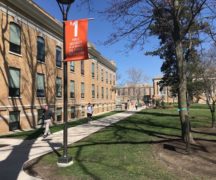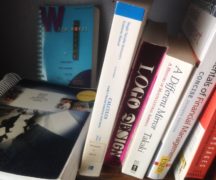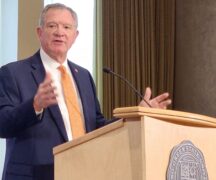By DAVID DUPONT
BG Independent News
A move to study student evaluations for bias got mixed response at Faculty Senate meeting at Bowling Green State University.
With representatives from undergraduate student government on hand, the senate heard from both sides of the evaluation question.
Faculty members took the existence of bias as a given, widely reported in various studies. Mary Natvig said there was “incredible bias against women” in the evaluations.
Timothy Tierney, a student senator, questioned whether the studies were adequate, questioning the sample size.
Natvig noted that in her 30 years of teaching musicology she has been called a “bitch” numerous times, and “a whore.”
The ad hoc committee would look at the literature on bias in student evaluations.
The issue of the adequacy of those evaluations came up last spring when the administration moved to create a set of uniform questions to ask, which could be used with additional questions.
Juan Bouzat, a faculty member in biology, said the evaluations serve two purposes. On one hand, they provide faculty with feedback on their teaching, Bouzat said he has learned from the evaluations provided by students, even ones that showed clear bias. They can also be used as a tool by the administration in decisions about tenure and promotion. Administrators in the past have downplayed their role in that process, though Natvig, a full professor, said, they have been used in her case.
Marcus Goolsby, the vice president of undergraduate student government, said the way the resolution was worded was “speaking” to students differently than to faculty.
He said the ad hoc committee should include students.
When Nancy Patterson, of the education faculty asked if there was any precedent for students serving on a faculty senate committee.
David Border, chair of the senate, said there was.
William Albertini, of the English Department, said questioning the evaluations was not aimed at “demeaning” the student voices, but rather making sure that the information they provided was quality data.
Anne Gordon, who teaches psychology said faculty members were not saying students were overtly biased, but such prejudice can be subtle.
Gordon suggested that the ad hoc committee look beyond bias based on race and gender, but also at that based on age.
The categories were broadened.
Montana Miller, of popular culture, said that much of the work of the committee has already been done by a learning community she participated in last spring.
That community, led by Lisa Hanasono, looked at the research and made a presentation on its findings. The work done by the learning community and Hanasono should be incorporated in the ad hoc committee’s work. Having a body with more prominence could help disseminate its findings more broadly, Miller said.
Peter Blass, of chemistry, suggested that the committee should look at whether the bias found, existed by BGSU.
Miller questioned whether that was necessary. Why would BGSU be different?
Blass said it would be worthwhile given the evaluations were used to make decisions at BGSU.
The resolution to form the ad hoc committee passed. It is expected to report to the senate in spring.





